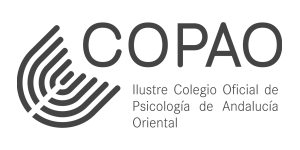Speaker

MUHAMMAD BELLO
UNIVERSITY OF SOKOTO. NIGERIA
Dr. Muhammad Bello Nawaila is a highly accomplished academic and researcher with a PhD in Computer Education and Instructional Technology. His interdisciplinary expertise lies at the intersection of educational technology, computer science, and mathematics, he brings over 15 years of experience in teaching, research, and academic leadership. His work focuses on leveraging digital technologies in education, with research interests spanning mobile learning, social media integration in classrooms, digital children’s rights, and educational data mining.
Dr. Nawaila is proficient in the use of LMS platforms, and has strong expertise in data analysis tools including SPSS and MATLAB. He has published extensively in international journals and contributed to global discourse on smart cities, artificial intelligence in education, digital literacy and digital child right in both global North and South.
Currently, he serves as a Principal Lecturer at Federal College of Education Jama’are, and a visiting Lecturer at both NorthWest University Kano and Aliko Dangote University of Science and Technology, where he also coordinates academic seminars and student research.
Dr. Nawaila is a member of several professional associations including the Computer Professional Council of Nigeria, the Teacher Registration Council, and the Mathematical Association of Nigeria. He is also affiliated with the Maitama Sule Centre for Peace and Development.
Multilingual in English and Hausa, Dr. Nawaila combines technical expertise with a passion for educational innovation and student mentorship, Dr. Nawaila remains committed to transforming learning environments through technology as well as protecting children online. His previous roles include senior academic positions at the College of Education, Azare, where he also headed the Information Processing Unit.
Child Psychology and Digital Child Rights: Discussing the views of the digital Natives

The link between child psychology and digital child rights is becoming very important in the modern age, where children grow up immersed in technology. These children, also referred to as Digital natives, are individuals born during or after the rise of digital technologies, with their development (psychological, social, etc) deeply influenced by constant interaction with digital devices, social media, and other online platforms.
Psychologically, digital natives experience a unique social, emotional, and cognitive development process. They display a natural affinity for technological devices, high visual-spatial abilities, and huge digital multitasking skills. However, these advantages are more often than not accompanied by shortfalls such as dependency on digital validation, increased exposure to cyberbullying, and reduced attention spans. The constant online presence has also been proven to affect real-life social interactions, emotional regulation, as well as sleep, thereby making the psychology of today’s children more intricate than ever.
Digital child rights, based on the broader framework of children’s rights, emphasize the need to educate, protect, as well as empower children in the digital world. These rights include that of participation, protection from cyberbullying and grooming, freedom of expression, access to information, as well as privacy in the digital world. Digital natives are becoming increasingly vocal on issues such as: protection, autonomy, and voice in the online world, online privacy (data and information), and the right to be heard.
As technology progresses exponentially, so must our understanding of child psychology and their digital rights. It is vital to engage these children (both Genders and both from the global South and North) in dialogues about their perspectives and experiences in the digital world. Recognizing these perspectives will ensure that digital policies are protective as well as empowering. Ultimately, a balance must be struck between safeguarding children and enabling them to thrive and participate fully in an increasingly digital society.








